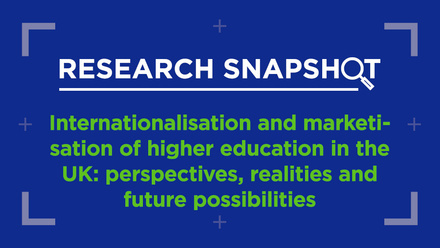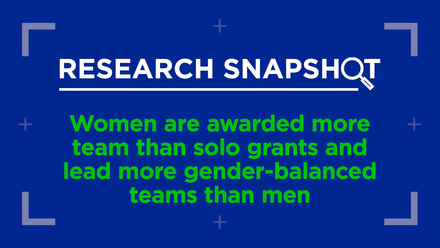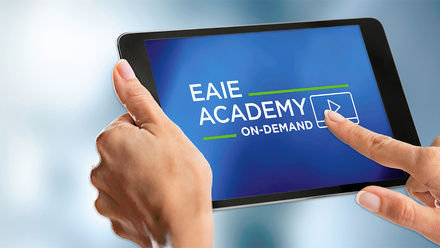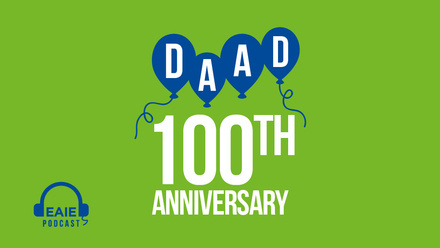Championing IaH: the role of national organisations and agencies

National organisations and agencies dedicated to supporting higher education internationalisation play a pivotal role in its enhancement. They tackle a spectrum of tasks essential to internationalisation. They handle various responsibilities varying per organisation, related to incoming and outgoing mobility, policy advice and research about internationalisation. Yet their role in Internationalisation at Home (IaH) has not been fully explored.
National organisations and agencies are an untapped resource for supporting higher education institutions (HEIs) in advancing their understanding and implementation of IaH. They are in a unique position to provide the know-how for HEIs and offer a platform for HE professionals to exchange and share knowledge with their peers.
This is particularly vital as more HEIs turn to IaH, driven by its growing recognition of offering opportunities to all students to gain international and intercultural competencies within their academic disciplines. However, it also reflects today’s challenging higher education landscape, where resistance to internationalisation is surfacing more often than we might have hoped. IaH is not only here to stay but continues to grow in importance.
This blog draws on a conversation at the 2024 Annual EAIE Conference in Toulouse with professionals from Nuffic (the Dutch organisation for internationalisation in education) and Movetia (the Swiss national agency for promoting exchanges and mobility). The conversation explored the pivotal role of national organisations and agencies in advancing IaH.
Knowledge brokers
Nuffic serves as the Erasmus+ National Agency for the Netherlands, with its IaH activities conducted independently of Erasmus+ as the national organisation for internationalisation in education. Nuffic focuses not on directly implementing IaH within HEIs but on serving as a knowledge broker and facilitator. Nuffic offers a platform for higher education professionals to connect, exchange ideas, and learn from one another through initiatives like webinars, a LinkedIn community, Communities of Practice and published articles. By fostering spaces for collaboration and dialogue, they drive innovation and encourage shared learning across institutions.
In recent years, IaH has also become part of Nuffic’s agenda for the vocational education sector (VET) in the Netherlands. The key is ensuring that IaH knowledge is both accessible and practical.
It has proven incredibly rewarding to see institutions connect, learn from each other and make tangible progress in implementing IaH. A genuine willingness to share and a true feeling of community is present.
Beyond these initiatives, Nuffic engages with its primary funder, the Dutch Ministry of Education, while keeping a close eye on research, emerging trends, and developments within the dynamic field of IaH.
Building bridges with Movetia
In Switzerland, Movetia has played a pivotal role in raising awareness about IaH and providing targeted support to Swiss HEIs. One aspect highlighted during the conference session was the agency’s efforts to engage diverse stakeholders in showcasing the value of internationalisation for all students. By partnering with HEIs, Movetia facilitates dialogue, learning, and professional growth opportunities. Through workshops, masterclasses and regular events, they help HEIs develop the skills and networks needed to implement IaH initiatives successfully.
A particular focus lies in advising education professionals to embed IaH into their teaching practices and support their professional development. One example is Movetia’s involvement in developing the Shuffle app, a digital platform that connects domestic and international students based on shared interests. Still in its pilot phase, the app has sparked significant discussions about the potential of digital tools to support IaH.
Technology is one way to engage students in intercultural learning. Still, at its core, the goal is to create environments where all students—local and international—can collaborate, share experiences and gain a broader understanding of the world.
Viewpoints of other national organisations and agencies
But what about other national organisations and agencies? How do they perceive IaH? To explore this, Nuffic and Movetia colleagues joined forces with Lucie Weissova (Halmstad University, Sweden; Universita Cattolica del Sacro Cuore, Italy) and reached out to colleagues at three national organisations and agencies in the field for their insights. Here is what was discovered:
Growing emphasis on IaH: With shifts in student mobility patterns and changing student demographics, there is a noticeable rise in interest surrounding IaH. As mobility opportunities are under pressure, for example, because of changing migration policies, HEIs are increasingly exploring new ways to ensure all students develop intercultural competencies, with IaH emerging as a promising approach.
Indirect engagement with IaH: Several organisations and agencies noted that their involvement with IaH is predominantly indirect. For instance, their efforts to facilitate the mobility of international students and staff naturally lead to cultivating a globally diverse learning environment at home. However, they stressed that this won't happen independently—it requires intentional efforts, such as curriculum adjustments and faculty development.
Alignment with national strategies: Some organisations and agencies have included IaH as a key component of national education strategies, helping to institutionalise the concept and integrate it into educational policies and funding mechanisms.
Challenges
Despite the growing recognition of IaH, several challenges persist. A significant hurdle lies in the confusion and misunderstanding surrounding what IaH truly entails. Many still equate internationalisation with mobility and international students, often overlooking the broader goal of embedding international and intercultural dimensions into the existing curriculum.
Another pressing issue is how to support the deeper integration of IaH within HEIs effectively. Engaging all stakeholders—particularly academics who play a critical role in implementing IaH in the curriculum, educational advisors, and policymakers—can be difficult. Unlike mobility-focused initiatives, IaH requires collaboration across a broader network within HEIs. Building connections with those not yet involved in internationalisation is essential to making IaH a sustainable, institution-wide practice.
Opportunities for the future and impact
Looking ahead, both Nuffic and Movetia are focused on expanding their efforts. One of the ambitions is to see how to collaborate with other national organisations and agencies to share resources and explore how they can collectively support the development of IaH across Europe and beyond. Furthermore, we are keen to continue to engage a wide range of stakeholders, from educators to policymakers, to ensure that IaH becomes a core element of national education strategies. Being involved in this process as a national organisation or agency offers a unique opportunity to take a bird's-eye view, identifying trends and developments in IaH and understanding the needs of different HEIs and stakeholders.
This blog aims to spotlight opportunities for other national organisations and agencies to actively engage in IaH and create a lasting impact in higher education. The ripple effect extends well beyond the institutions themselves. By supporting the sustainable integration of IaH within HEIs, these efforts empower all students to develop the international and intercultural competencies essential for their unique contexts and personal growth.
Examples of involvement in IaH by Movetia and Nuffic
Movetia:
Nuffic:
- Nuffic website: Internationalisation at Home (IaH)
- News article: EAIE 2023: Key Insights for Internationalisation at Home
This blog builds upon the session ‘Supporting institutions on their IaH route: The potential of national agencies', which Maria Stergiou (Movetia, Switzerland) and Anouk Vermeulen (Nuffic, The Netherlands) presented at the 2024 EAE Conference in Toulouse. Lucie Weissova (Halmstad University, Sweden; Universita Cattolica del Sacro Cuore, Italy) chaired the session.






